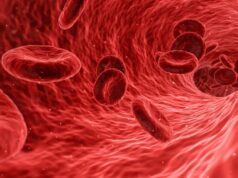
A study published in Circulation has not only found that patients who adhere to medical regimens after revascularisation have increased survival but also that adherence is a more powerful predictor of adverse event-free survival than the type of revascularisation procedure that a patient had.
In the study, data for 3,228 patients (from eight US community hospitals) who underwent a revascularisation procedure in 2004 was reviewed. Of these, 973 patients had coronary artery bypass grafting (CABG) and 2,255 patients had percutaneous coronary intervention (PCI). At the end of follow-up period (five to seven years), those who had continued with their prescribed medical therapy were 2.8 times more likely to have survived without a major adverse coronary event (MACE) compared with those who were non-adherent.
There was no statistically significant difference in MACE-free survival between bypass and PCI patients who had continued with their medications, with more than 90% MACE-free survival in patients with similar clinical characteristics. However, non-adherent patients who had PCI were nearly one and a half times more likely than surgery patients to have a major cardiac event.
Study author Paul Kurlansky (assistant professor of surgery at Columbia University Medical Center, USA), comments: “A great deal of clinical research has been devoted to comparing outcomes in people who have had bypass surgery or a stent. But very few studies have looked at what happens to those outcomes when patients do not adhere to their prescribed medical therapy. This is particularly important because roughly one-quarter of revascularisation patients eventually stop taking their medications, due to issues such as medication costs, side effects, and a lack of noticeable symptoms.”
He adds: “While larger, prospective studies are needed to replicate our results, this study underscores the importance of educating PCI and bypass patients about the need to stick to their prescribed regimens, even if they feel just fine. It also suggests that physicians may need to recommend surgery instead of PCI for patients who are unlikely to adhere to their prescribed medical therapy.”
The study, titled “CABG vs. PCI: Meds Matter, Impact of Adherence to Medical Therapy on Comparative Outcomes,” was funded by unrestricted educational grants from the Florida Heart Research Institute and HCA Healthcare.













